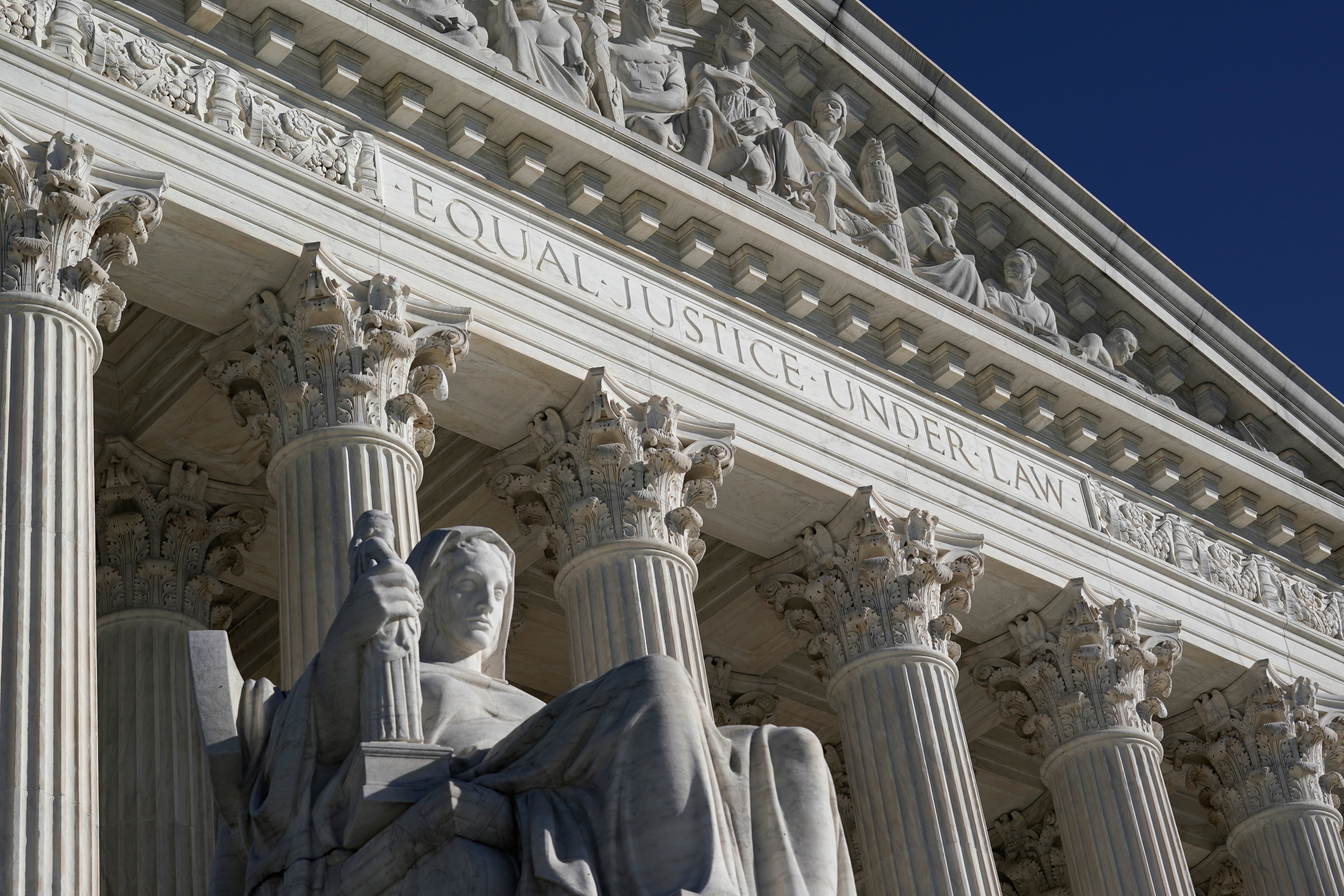Supreme Court rules three Muslim men can sue FBI over no-fly list
Ruling could have wider implications for religious freedom cases brought against government officials

Your support helps us to tell the story
From reproductive rights to climate change to Big Tech, The Independent is on the ground when the story is developing. Whether it's investigating the financials of Elon Musk's pro-Trump PAC or producing our latest documentary, 'The A Word', which shines a light on the American women fighting for reproductive rights, we know how important it is to parse out the facts from the messaging.
At such a critical moment in US history, we need reporters on the ground. Your donation allows us to keep sending journalists to speak to both sides of the story.
The Independent is trusted by Americans across the entire political spectrum. And unlike many other quality news outlets, we choose not to lock Americans out of our reporting and analysis with paywalls. We believe quality journalism should be available to everyone, paid for by those who can afford it.
Your support makes all the difference.The US government can be sued for "unlawfully burdening" religious exercise under a Supreme Court ruling in favour of three Muslim men placed on the no-fly list.
In a unanimous 8-0 decision, the court ruled they have the right to sue the Federal Bureau of Investigations agents under the Religious Freedom Restoration Act.
At dispute was whether the law, which allows people to seek “appropriate relief against a government”, includes monetary damages as “appropriate relief”.
The three foreign-born plaintiffs, who are either US citizens or green card holders, alleged they were placed on the no-fly list in retaliation for refusing to report on friends and neighbours, which violated their Islamic beliefs.
The ruling could have wider implications for religious freedom cases brought against government officials, who Justice Clarence Thomas noted are entitled to assert qualified immunity in defence when sued as individuals.
“The question here is whether ‘appropriate relief’ includes claims for money damages against government officials in their individual capacities. We hold that it does,” Justice Thomas wrote for the court.
Justice Amy Coney Barrett did not take part in the case, which was underway before her confirmation in October.
“A damages remedy is not just ‘appropriate’ relief as viewed through the lens of suits against government employees,” Justice Thomas wrote. “It is also the only form of relief that can remedy some RFRA violations. For certain injuries, such as respondents’ wasted plane tickets, effective relief consists of damages, not an injunction.”
Muhammad Tanvir, Jameel Algibhah, and Naveed Shinwari claimed in the lawsuit that their religious beliefs prevented them from spying on their community for the FBI.
Ramzi Kassem, a lawyer for the three, argued at the October hearing that they lost years with loved ones, as well as jobs and educational opportunities.
“Federal agents put my clients on the No-Fly List because they refused to spy on innocent co-religionists in violation of their Islamic beliefs,” Mr Kassem said.
"This is a clear prohibition in the Islamic faith."
Mr Tanvir said in the suit that he was unable to fly home after driving long-haul distances in his roles as a truck driver, while losing money on plane tickets to see family in Pakistan.
The original case they brought against the government was dismissed after they were removed from the no-fly list, but they continue to appeal for leave to sue for monetary damages.
The government argued the purpose of the 1993 Religious Freedom Restoration Act, which allows for "appropriate relief" from the government, was not meant to include monetary damages against government officials in their personal capacities.
Justice Thomas wrote that there may be reasons why Congress would want to shield government employees from personal liability if they chose to do so, but that there were no constitutional reasons why the Supreme Court was at liberty to do so.
While Thursday's ruling allows for the cases to be brought, it doesn't mean they will necessarily win the case or, if they do, will collect damages from the agents involved.
"Both the government and respondents agree that government officials are entitled to assert a qualified immunity defense when sued in their individual capacities for money damages under RFRA," Justice Thomas wrote.
"Indeed, respondents emphasise that the 'qualified immunity defence was created for precisely these circumstances,'… and is a 'powerful shield' that 'protects all but the plainly incompetent or those who flout clearly established law'."



Join our commenting forum
Join thought-provoking conversations, follow other Independent readers and see their replies
Comments